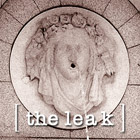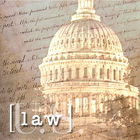
|
|||||||
Article I, Section 1, US Constitution: First Amendment to the US Constitution: Seventh Amendment to the US Constitution:
|
COURT FILING CITES 'CONCERTED EFFORT' TO ATTACK CRITICS WASH. POST REPORTS WHITE HOUSE EFFORT TO USE TOP SECRET INFORMATION TO ATTACK CRITICS OF IRAQ POLICY 9 April 2006 Regardless of whether the president or the vice president have done anything illegal, it is now clear that they were both involved in deliberately using classified national security information to smear a critic of their Iraq policy. This contradicts statements made as recently as last week which suggest that the president opposed any such use of sensitive information for personal or political gain. The Washington Post now describes a "concerted effort" by White House officials to use classified information to retaliate against at least one critic of their Iraq policy, namely Joseph Wilson, specifying that the vice president played a central role in this campaign to smear Wilson. The Post reports that "according to Libby's grand jury testimony, described for the first time in legal papers filed this week, Cheney 'specifically directed' Libby in late June or early July 2003 to pass information to reporters from two classified CIA documents: an October 2002 National Intelligence Estimate and a March 2002 summary of Wilson's visit to Niger". The Post also cites a legal brief filed on behalf of Libby's defense last month, which states that "certain officials at the CIA, the White House, and the State Department each sought to avoid or assign blame for intelligence failures relating to Iraq's weapons of mass destruction". What's more, in the wake of last Wednesday's court filing by special prosecutor Patrick Fitzgerald, the man who served as chief of staff for Colin Powell, when he was Secretary of State, Lawrence Wilkerson, says the information Bush ordered declassified for the purpose of leaking it to the press, had already long been discredited. In fact, the information was thoroughly discredited through Wilson's Africa investigation itself (the evidence which the White House wanted to refute), but also by UN weapons inspectors and nuclear policy and intelligence experts working for the International Atomic Energy Agency. All of that analysis had come prior to the Iraq invasion, and the information had been made public. But Wilkerson has also pointed out that the State Department's own intelligence branch had done investigations and found that the intelligence relating to an alleged Iraqi quest to obtain "yellowcake" uranium from Africa had been based on crude forgeries, easily identifiable to anyone aware of who sat in which post in Niger's government or of the date of that nation's then existing constitution. The forgeries had information of both types completely wrong. It's also important to note that the Niger uranium market is internationally monitored and controlled. A simple bid to allegedly corruptible officials would not have yielded any dangerous substances to Saddam Hussein, simply because those officials would not have any control over the nuclear materials themselves. The "concerted effort" described by the new evidence also relates to efforts to dress up phony intelligence to appear more credible: first of all, the uranium claims themselves were already known to be false, so Libby was instructed to use selective language to make the claims appear more credible. He reportedly told reporters that the yellowcake uranium story was a "key judgment", meaning that it was agreed upon by intelligence analysts as the basis for conclusions about Iraq's WMD program. In fact, this is a meaningful official term, and the claim was not at all a key judgment of the NIE. It was instead buried deeper in the document's analysis, as a detail which might or might not suppport the document's central conclusions. Even the complete NIE itself notes that the US "cannot confirm" the claims, and includes a dissenting opinion from State Dept. intelligence citing the evidence as flawed. The Post story specifies "Iraq's alleged uranium shopping had been strongly disputed in the intelligence community from the start. In a closed Senate hearing in late September 2002, shortly before the October NIE was completed" both CIA director Tenet and his chief weapons specialist expressed concern that the Niger story might be false. The State Department's intelligence reports found the claim to be "highly dubious", and it looks as if the story was pushed aggressively by the White House Iraq Group, a team set up within the White House in August 2002 to promote "public education" about Iraq's supposed danger to its neighbors and to the United States and its allies. So, it now appears, this new court filing not only links the president to the campaign to discredit Wilson, it also appears to provide the clearest evidence to date that there was a deliberate campaign to manipulate the language of top secret intelligence in order to deceive the American public. That is another charge that both Cheney and Bush have repeatedly denied. But Libby's grand jury testimony outlines a process whereby statements of fact were molded to fit a rhetorical argument, even after the basic facts themselves had been generally accepted as disproven. What is unclear, if anything, from Libby's testimony, is whether the White House openly sought to persuade the American public that the claims were in fact true, or simply whether they had been throught true at the time they were included in public arguments for the invasion. In fact, it now appears clear, from a chronological analysis of the supporting documents and of testimony before Congress, by UN experts, in Amb. Wilson's report, and now from Libby, that neither was a viable truth: the Niger claim was not only not substantiated; the White House clearly knew and had seen evidence that it was not true, some of that evidence in the October 2002 NIE itself, five months before the invasion. Bush used the Niger story, three months after the NIE had reported the information was in doubt, in his January 2003 State of the Union address. Two months later, the IAEA publicly declared the intelligence to be based on crude forgeries, and the president's own commission concluded that the alleged contracts, which had been sold to intelligence agents by an Italian informant, were "transparently forged". The question now seems to be, according to analysts across the US media, whether Pres. Bush will suffer irreparable harm to his credibility, as evidence emerges that he not only participated in the campaign against Wilson, but that he had seen evidence clearly indicating that his own statements could not be substantiated by existing evidence. So far, the White House response had been mixed: initially there was no comment at all, then a clear indication that the White House did not deny Mr Bush declassified parts of the NIE specifically so they would be leaked to the press. Now, the White House openly says the leak was "in the public interest", the interest being to assure the public that the president was not "manipulating intelligence". Now, it is likely journalists will pursue the president on at least one more matter of rhetorical hair-splitting. While he may not have committed illegal acts, it appears that his denials about supporting leaks were false, and it now also clearly seems that even the testimony the White House wants to paint as referring to efforts to serve "the public interest" shows that White House efforts, through Libby, were specifically directed toward manipulating the language of the NIE in order to smear Wilson and defend a false claim. And, it is precisely this information which is likely to require testimony from top officials, when Fitzgerald brings Libby to trial. The prosecutor will want to know, in order to push his perjury charges against Libby, who was involved in Libby's leaking of classified information and what similar circumstances occurred during that time, and he will want to know, as a matter of legal proceeding against Libby, whether the campaign was designed to stick to the facts, or whether it placed personal agenda over means, ethically. [s]
BACKGROUND: As the case against Lewis "Scooter" Libby proceeds, for violating the federal law prohibiting the disclosure of the classified identities of undercover agents, he has reportedly testified to a grand jury that Pres. Bush was directly involved in the leaking of other information to the press. The information emerges from a court filing by special prosecutor Patrick Fitzgerald, citing testimony given during grand jury proceedings. [Full Story] LIBBY CHARGED WITH PERJURY, OBSTRUCTION, RESIGNS The office of the special prosecutor, Patrick Fitzgerald, investigating the leaking of the classified identity of an undercover CIA agent, announced Friday a 5-count indictment [PDF] against Vice President Cheney's chief of staff, I. Lewis Libby. Libby was charged on 1 count of obstruction of justice, 2 counts of making false statements and two counts of perjury. [Full Story] |
||||||
|
|||||||

